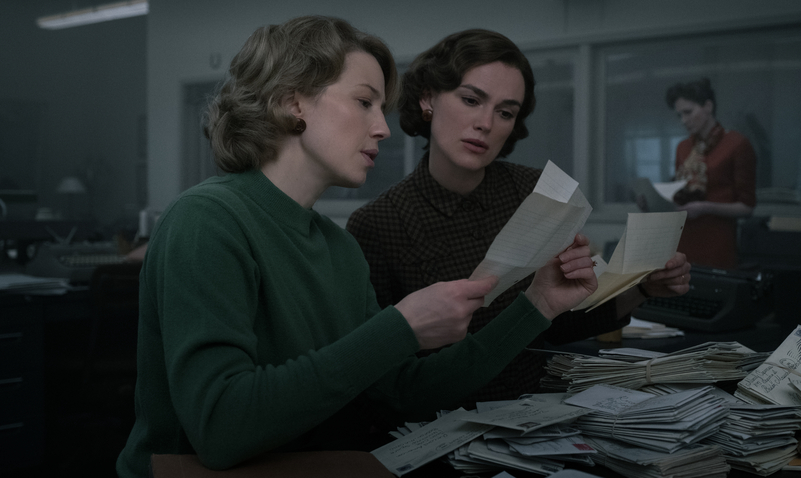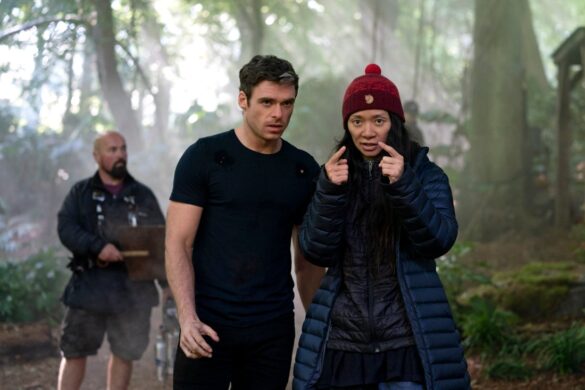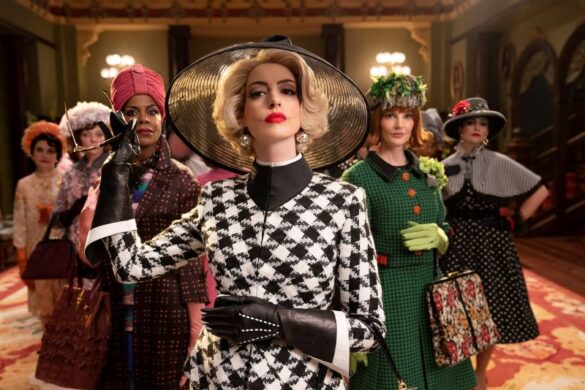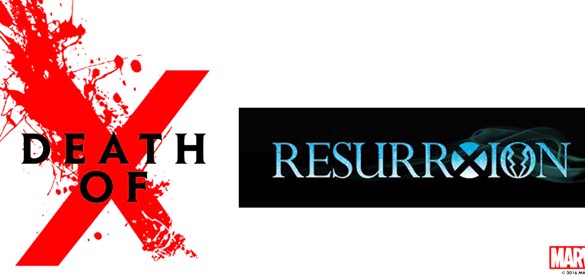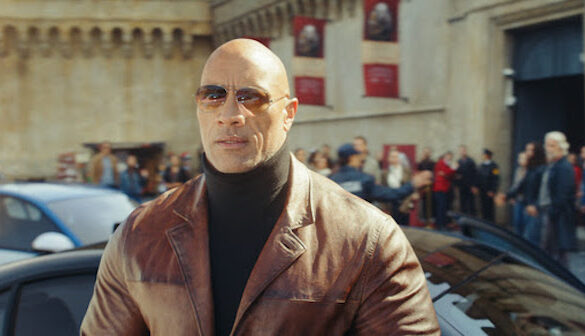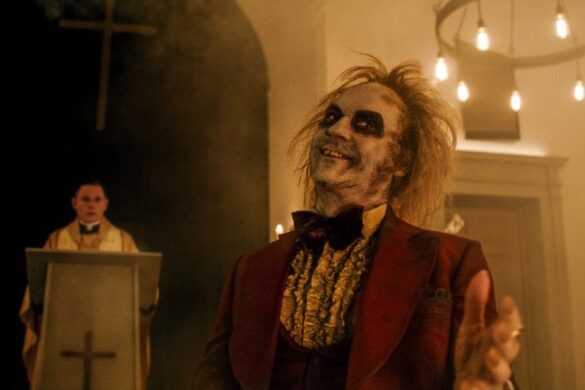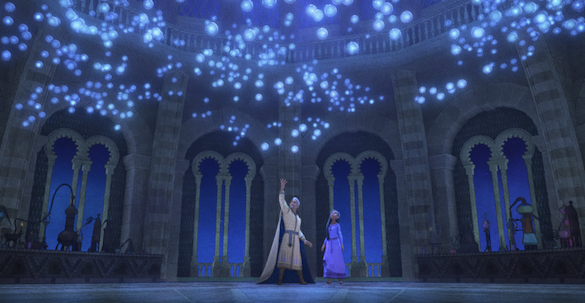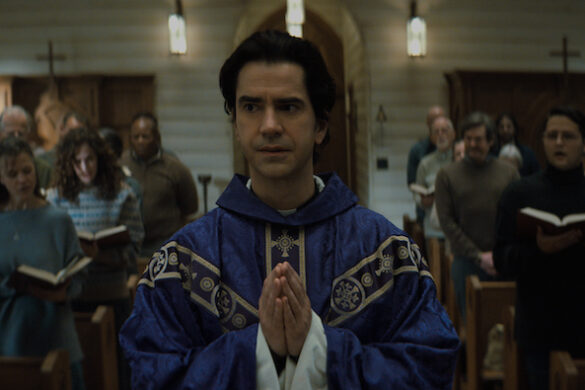Serialized true crime has increased in popularity these past few years, with content creators revisiting cold cases and their audience examining the clues with each new episode. But it walks a fine line between riveting storytelling and celebrating a killer. So getting to the truth or at least honoring those who search for it can get lost. But for director and writer Matt Ruskin, not only did he want to retell the story of “The Boston Strangler,” he wanted to shed light on the intrepid female journalists who dared to find the facts and report on the news when the police weren’t doing enough to protect its citizens.
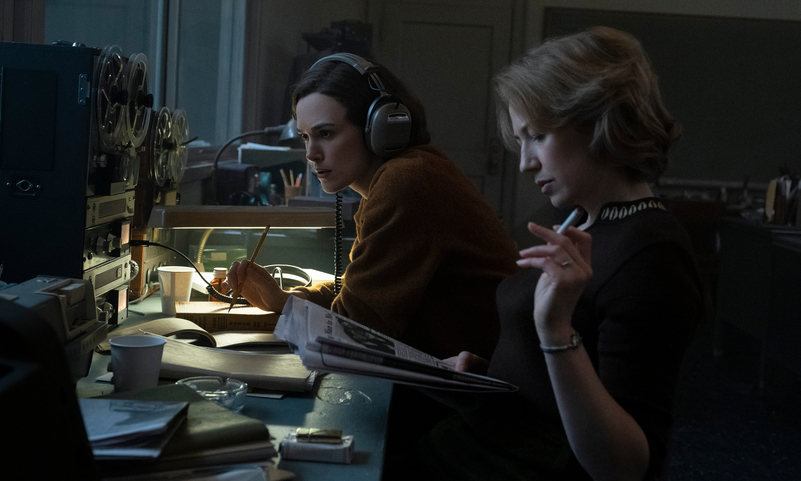
Set to debut on Hulu, “The Boston Strangler” tells the story of Loretta McLaughlin (Keira Knightley), a reporter who becomes the first person to connect a series of murders and break the story of the Boston Strangler. Though she and Jean Cole (Carrie Coon) faced a patriarchal newsroom and domestic household, their resiliency and determination proved to be the key to uncovering widespread corruption within the city’s law enforcement and discovering the true identity of the Boston Strangler.
Going into the film, I knew next to nothing about “The Boston Strangler” as it was way before my time. While some true crime content focuses on gruesome violence, Ruskin swaps that for excellent character drama. Of course, that doesn’t mean the murders take a backseat, as it serves as the backdrop for McLaughlin and Cole’s investigation. But given how insanely popular these true crime stories are, it’s nice to see that we get to see the story of those who cracked the case and the odds they had to face because of their gender.
Without getting too far into how the case was solved, the film takes place over two years, where the Boston Strangler claimed 13 victims. Though Boston Police Department couldn’t make any connection at the time, McLaughlin was one of the first to make a connection between the first four murders. Though her editor Jack MacLaine (Chris Cooper), didn’t expect much of her except for writing lifestyle pieces, McLaughlin convinces him to put her on the case. And so, he pairs her up with medical reporter Jean Cole. At first, the two were reluctant about the pairing, and each had different journalistic styles and backgrounds. McLaughlin was more of a typical domesticated housewife of three kids, while Cole is a bit of a hard-edge nurse with a network at her disposal should she need any files that other journalists cannot access.
So McLaughlin and Cole recognized the patterns and wrote reports warning Boston women of any suspicious men. But, of course, their fearless reporting created many problems in the newsroom and at home. Men at the office kept underestimating two and put them in danger by publishing photos of them next to each of their reports. Even the police tried to downplay her reports by telling her editor that she was flirting with officers.
And it wasn’t any easier at home, with McLaughlin’s husband feeling that Loretta prioritizes her work over being a housewife. So he does anything he can to make her stay at home, including taking a job that requires him to work at an out-of-state office part-time. Even her sister-in-law feels as though Loretta is being selfish. But something much bigger happened, and these two reporters knew that they were on the verge of saving lives by putting a killer in jail.
While the story of the murders themselves can be narratively limiting, the film is mainly concerned with McLaughlin and Cole and their investigation. While “The Boston Strangler” takes much of its cinematic inspiration from movies like David Fincher’s “Zodiac,” the film is at its best when it focuses on the pressures of the two solving the case, the sacrifices they had to make to find the killer, and how they put their lives on the line for the investigation. But as soon as it leans into those dimly lit rooms to create an ominous atmosphere, the film starts to feel like a rehash of these based on true story cinematic retellings.
But at a nearly two-hour runtime, “The Boston Strangler” has a lot of ground to cover in the two years that these murders took place. So, of course, we see McLaughlin and Cole’s experiences, but we also see the murders. We even get to see how the various police departments dropped the ball in their investigations.
While “The Boston Strangler” is a surface-level paint-by-number story, the film’s real heart is how it explores McLaughlin and Cole’s investigation. The way they read newspaper clippers to find clues, call every single Sullivan from the phone book, and even push the keys on the typewriters had a satisfying feel as it brought back the classic investigative tones reminiscent of these mystery thrillers. Tense and thrilling, even if it follows similar beats, the film reminds us about the importance of having women in the newsroom.
7.5/10

